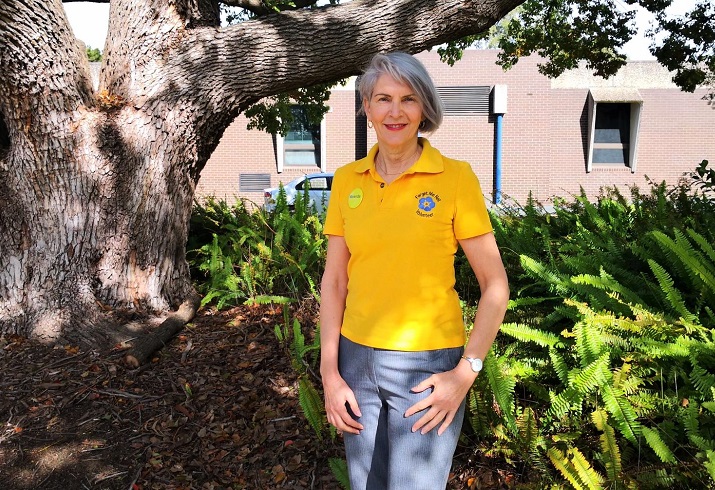Dementia Action Week – Getting to know our Forget Me Not volunteers

This week is Dementia Action Week, which will be celebrated with the theme "Dementia. A little support makes a lot of difference". With that in mind, we reached out to one of our “Forget Me Not” volunteers, to see how the Forget Me Not program is making a difference to our patients with dementia, delirium or memory loss, and their carers and families.
Miranda became a Forget Me Not (FMN) after responding to a newspaper advertisement, and after completing her training, began volunteering her time as a FMN in December 2018.
“I have always had a strong interest in aged and dementia care and the fact that this program allowed further learning opportunities and experiences in a structured environment appealed to me,” said Miranda.
“Relating to the patient on a personal level, enjoying one on one conversations that aren't time restricted and enhancing patient emotional wellbeing. Feeling accepted and valued by hospital staff is fabulous as well.”
The FMN Program is made up of a dedicated group of people from many backgrounds, cultures, ages and professions, who each have an interest in creating meaningful connections with people experiencing dementia and delirium and supporting them through their hospital journeys.
The Program was first created at RPBG by Ellie Newman, whose dedication and passion for providing the best possible care for patients experiencing dementia and delirium has resulted in the FMN growing into an EMHS wide program that has been recognised Australia-wide.
The FMN Program was the winner of the inaugural 2019 Health Round Table Innovation Award for Accelerating Innovation Through Collaboration and was integral to EMHS being recognised as the first dementia-friendly metropolitan health service in July 2019. It has also become the best practice model for health services around the world seeking to improve the patient journey for people experiencing dementia and delirium and was highlighted in the first EMHS Excellence Symposium.
“What we do isn’t big, or amazing, it’s just as simple as striking up a conversation with someone, but it makes such a big difference,” said Miranda.
Miranda explained that the FMN volunteers have the time to speak to patients, their carers or significant others and gather information about what is important to the patient, their interests, coping mechanisms, routines, and anything that might trigger anxieties or fears. The FMN volunteer then uses this to inform the way they communicate and interact with patients, allowing them to make more meaningful connections and providing comfort and support. Importantly, the FMN volunteer then passes this information on to ward staff, ensuring continuity of care.
“It can be as simple as knowing how a patient likes their tea or coffee, or that they like to start each day sitting in the gardens. It’s these simple things that can help us to begin to understand the essence of a person, and that helps us to communicate with them in meaningful ways,” said Miranda.
“The program sees the person and not just the clinical condition and recognises the patient's individuality. A smile, someone to talk with and share your concerns with in your time of need can be very comforting and reassuring.”
The FMN Volunteer program is looking for more volunteers to provide this much needed service across the EMHS sites and can be contacted via ForgetMeNotVolunteerProgram@health.wa.gov.au

